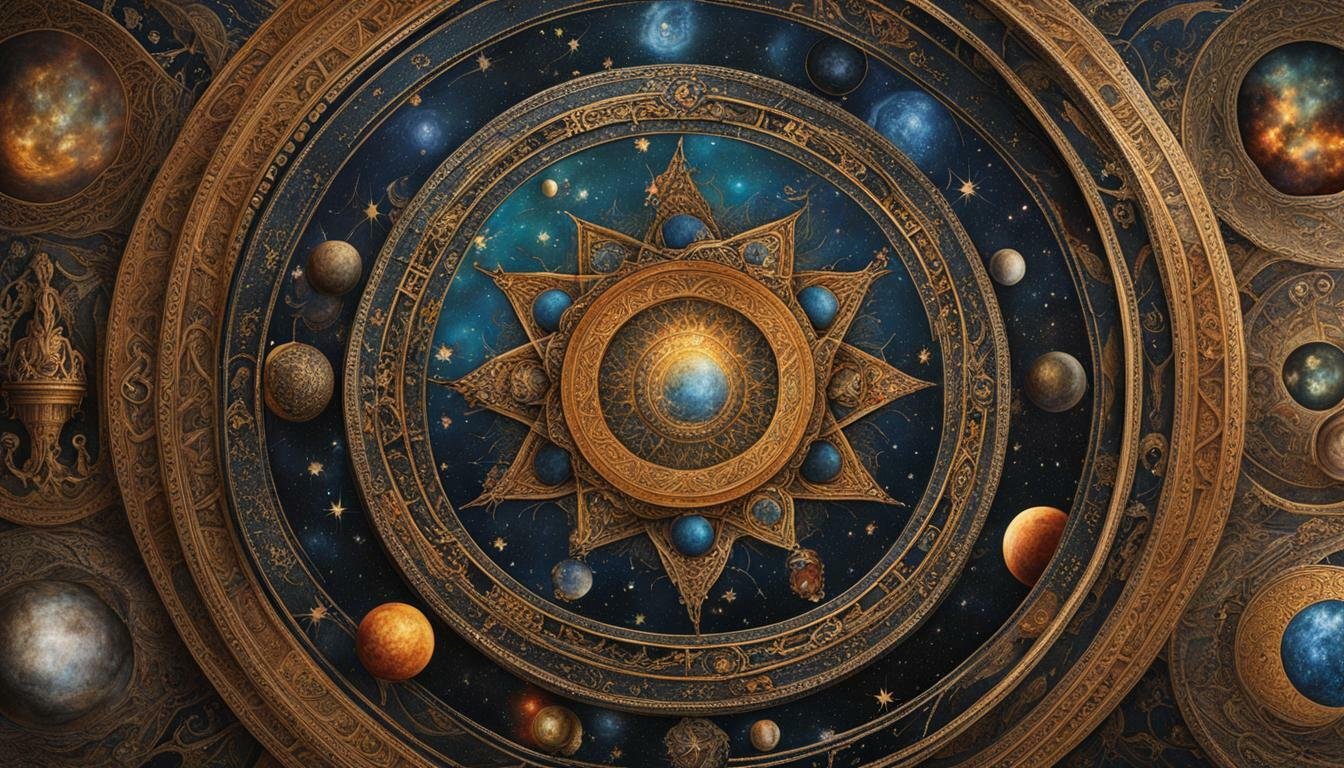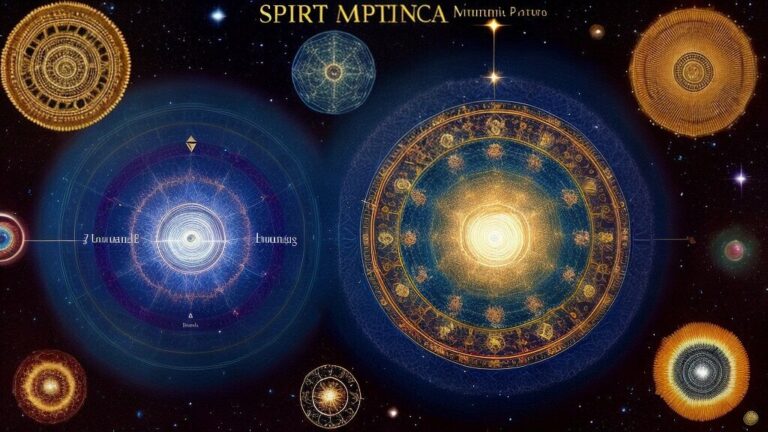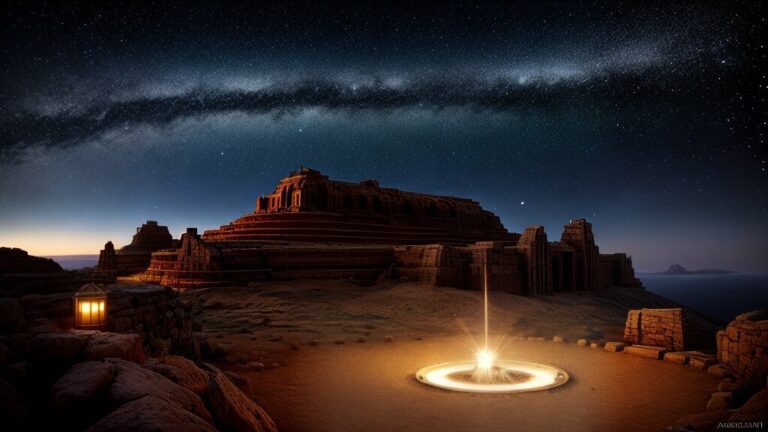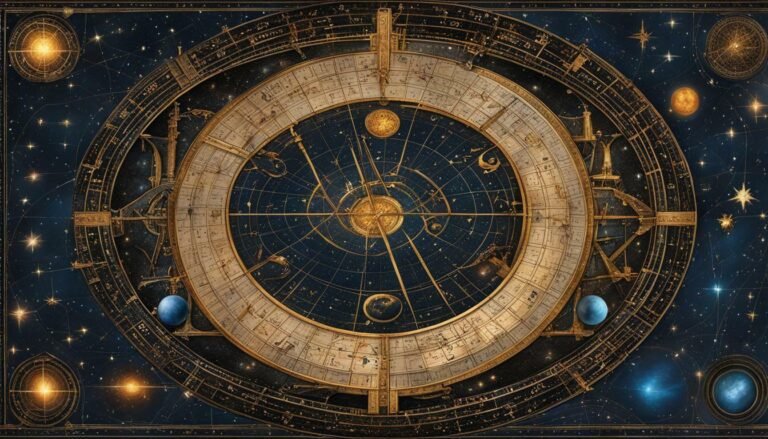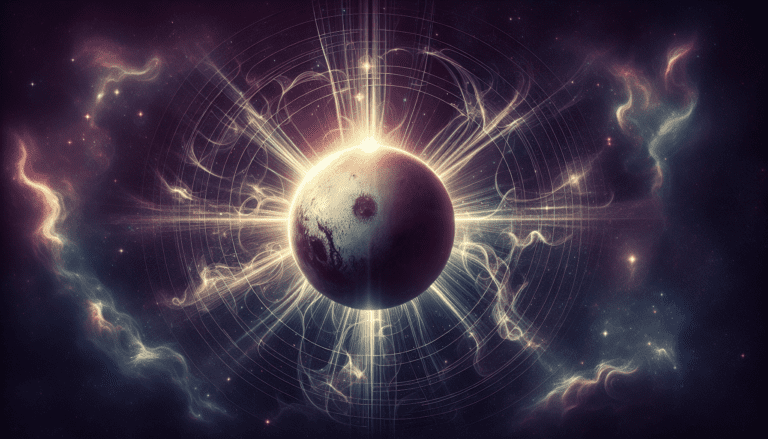Uncover the Mystery: Why was Astrology Created?
Astrology has been a subject of fascination for centuries, with its roots firmly anchored in human history. People have looked to the stars for answers to their mysteries, seeking guidance and solace in the movements of the planets. But why was astrology created in the first place?
To understand the purpose of astrology, we must trace its history and origins back to its ancient beginnings. From the ancient civilizations of Mesopotamia and Egypt to the astrologers of Greece, astrology has evolved over time, adapting to the changing beliefs and practices of different cultures.
Throughout its history, astrology has served many purposes, from predicting the future to providing insight into human behavior. It has been both a science and a spiritual practice, with a deep connection to the cycles of nature and the patterns of the universe.
Join us as we explore the fascinating world of astrology, uncovering the mysteries behind its creation and tracing its evolution through the centuries.
Key Takeaways:
- Astrology has ancient roots and has evolved over time to fit the needs and beliefs of different cultures.
- Astrology has served many purposes, including predicting the future and providing insight into human behavior.
- Astrology is both a science and a spiritual practice, with a deep connection to the cycles of nature and the patterns of the universe.
- Understanding the origins and purpose of astrology can provide insight into its continued relevance in modern society.
The Ancient Beginnings of Astrology
Astrology has a rich history that dates back to ancient civilizations such as Mesopotamia, Egypt, and Greece. These early societies were fascinated by the movements of the stars and recognized patterns in their motion over time.
In Mesopotamia, astrologers first developed horoscopes as a way to predict future events based on the alignment of the stars and planets. The ancient Egyptians believed that the movements of the stars and planets had a direct impact on their lives, while the Greeks saw astrology as a means to connect with the divine.
As the development of astrology continued, it became closely linked to religion and spirituality. Many early astrologers believed that the stars and planets were divine beings with the power to influence human behavior and destiny.
Over time, astrology became more sophisticated and was used to predict everything from crop yields to the outcome of battles. Astrologers also began to recognize patterns in celestial events and connected them to various aspects of life on Earth.
The Evolution of Astrology
As astrology continued to evolve, it spread to other parts of the world and took on new forms. In India, astrologers developed their own system of astrology known as Jyotish, which focused on the movements of the planets and their relationship to the zodiac.
In China, astrology was used to predict the fortunes of emperors and was closely linked to the five elements of wood, fire, earth, metal, and water.
Astrology also played an important role in the Renaissance, where it was studied by scholars such as Johannes Kepler and Galileo Galilei. These thinkers recognized the scientific aspects of astrology and saw it as a means to understand the natural world.
Today, astrology continues to be a popular practice around the world. Whether it is used for personal guidance, prediction, or simply as a means to connect with the cosmos, astrology’s origins and evolution have had a lasting impact on our understanding of the universe and our place within it.
The Science and Spirituality Behind Astrology
Astrology is a unique practice in that it combines both science and spirituality. For centuries, people have sought meaning and insight in the movements of the celestial bodies. The significance of astrology lies in its ability to offer guidance and understanding of life’s mysteries. In this section, we’ll explore the reasons behind astrology’s enduring relevance and the ways in which it has evolved over time.
As a science, astrology is rooted in the observation of the natural world. Ancient societies were fascinated by the movements of the sun, moon, and stars, and they began to recognize patterns and rhythms in their celestial movements. Early astrologers believed that these patterns held clues to human behavior and events, and they observed how the alignment of the planets corresponded with various aspects of life on Earth.
As a spiritual practice, astrology offers insight into the human experience. Many people turn to astrology as a means of understanding their place in the world and the events that shape their lives. By observing the movements of the planets and their influence on human behavior, astrologers seek to offer guidance and understanding to those who seek it.
The reasons behind astrology’s enduring popularity lie in its ability to offer both scientific and spiritual insights. Through the study of the natural world and the interpretation of celestial movements, astrology seeks to offer meaning and guidance to those who seek it. Whether through horoscopes or personal readings, astrology continues to be a powerful tool for self-discovery and enlightenment.
Astrology and the Cycles of Nature
The birth of astrology can be traced back to ancient civilizations that observed the natural cycles of the sun, moon, and planets. They noticed how the movements of these celestial bodies affected the world around them, from the growth of crops to the behavior of animals.
As early astrologers observed these cycles, they began to make connections between them and human behavior. They believed that the movements of the planets could have an influence on the events of our lives, and thus began to develop the practice of astrology.
Over time, astrology evolved from simply observing the cycles of nature to recognizing patterns in celestial events. Early astrologers noticed correlations between the movements of the planets and various aspects of life on Earth, such as the changing of the seasons, the rise and fall of empires, and even the personalities of individuals.
| Birth of Astrology | Evolution of Astrology |
|---|---|
| The ancient civilizations observed natural cycles and made connections between them and human behavior. | Astrology evolved from observing the cycles of nature to recognizing patterns in celestial events. |
Astrology’s connection to the cycles of nature remains a fundamental aspect of the practice. Today, astrologers continue to observe the movements of celestial bodies and their influence on the world around us, providing insight into our lives and the events that shape them.
Astrology and the Cycles of Nature
“As above, so below.”
This quote, attributed to the ancient philosopher Hermes Trismegistus, captures the essence of astrology’s connection to the cycles of nature. By observing the movements of the planets and their effects on the world around us, we gain insight into the inner workings of our own lives.
As you explore the origins and evolution of astrology, you begin to see how its connection to the cycles of nature has shaped its development. From the birth of astrology in ancient civilizations to the personalized horoscopes of modern times, the cycles of nature remain a foundational aspect of this timeless practice.
Astrology and the Discovery of Patterns
As astrology evolved, ancient astrologers began to notice patterns in celestial events. They observed correlations between planetary movements and various aspects of life on Earth. These observations led to the development of astrological predictions and horoscopes.
The history of astrology can be traced back to the ancient civilizations of Mesopotamia, Egypt, and Greece. These early cultures believed that the movements of celestial bodies held significance and meaning for human life. Astrology was seen as a means of understanding the patterns of the universe and one’s place within it.
Astrologers of ancient times noticed that certain events on Earth seemed to coincide with the movements of the stars and planets. For example, the rising of Sirius, the brightest star in the sky, marked the beginning of the Nile flood season in ancient Egypt. This connection led to the belief that the stars and planets had a direct influence on events on Earth.
As astrology evolved, astrologers began to connect planetary movements with human behavior and events. They observed that people born at certain times of the year tended to share certain personality traits, leading to the development of astrological signs. This discovery paved the way for horoscopes as a means of predicting future events and providing guidance for individual decision-making.
The origins of astrology and its evolution into a complex system of predictions and horoscopes can be traced back to the observations of ancient astrologers. Their understanding of the patterns of the universe and their connection to human life have shaped the way we view astrology today.
Astrology and the Birth of Horoscopes
As astrology continued to evolve, ancient astrologers began to develop personalized astrological predictions. The alignment of the planets and their interpretation played a crucial role in shaping horoscopes as they are known today. These early horoscopes were based on the time and location of an individual’s birth, and they were used to gain insight into their personality, future, and destiny.
Over time, horoscopes became more detailed and intricate, incorporating multiple factors such as zodiac signs, planetary movements, and astrological aspects. The use of horoscopes became increasingly widespread, and they were used to make important decisions in various areas, such as relationships, finance, and health.
Today, horoscopes remain a popular aspect of astrology, with countless people turning to them for guidance and insight. The evolution of astrology and the birth of horoscopes demonstrate how astrology has adapted and changed over time to remain relevant in people’s lives.
Astrology’s Influence on Culture and Society
Astrology’s influence spans beyond individual beliefs and has had a significant impact on culture and society throughout history. From art and literature to political decision-making, astrology has shaped our worldview and understanding of the universe.
The purpose of astrology in early societies was to make sense of the world and provide guidance in times of uncertainty. The significance of astrology, however, extends beyond this. The alignment of the planets and their interpretation played a pivotal role in art and literature. For instance, in Shakespeare’s plays, astrology was often referenced to explain the behavior of characters.
Astrology has also had a role in political leadership. In the past, rulers consulted astrologers to determine the best time to make important decisions, such as going to war or signing treaties. Some of the most notable historical figures known to have practiced astrology include Queen Elizabeth I and Catherine the Great of Russia.
Today, astrology continues to shape how we view our world. It has become an important aspect of many individuals’ lives, providing them with guidance and insight. Some even use astrology to make important decisions, such as choosing a career or choosing a partner.
Overall, astrology’s purpose and significance have not faded over time. Instead, it has continued to evolve and shape our cultural and societal perspectives, making it a lasting influence in our lives.
Conclusion
In conclusion, astrology has a rich history that spans across multiple cultures and civilizations. From its ancient origins in Mesopotamia to its present-day significance, astrology has evolved to become a widely used tool for gaining insight into one’s life.
Throughout history, astrology has been recognized as both a science and a spiritual practice. Its purpose has been to provide guidance and understanding of the celestial bodies and their influence on human behavior and events.
Astrology’s development can be traced through the birth of horoscopes, the recognition of patterns in celestial events, and its impact on various aspects of culture and society. It has influenced art, literature, and even political decision-making. Today, astrology continues to shape our worldview and provide insight into our lives.
By exploring the origins and purpose of astrology, we can gain a deeper understanding of its significance in today’s world. Astrology may have its roots in ancient times, but its influence continues to be felt by many.
FAQ
Q: Why was astrology created?
A: Astrology was created as a means for people to understand and interpret the celestial bodies and their influence on human behavior and events. It provides insight into the patterns and cycles of nature, offering guidance and predictions based on the positions of the planets and other celestial bodies.
Q: What is the history of astrology?
A: Astrology has a rich history that dates back thousands of years. It first emerged in ancient civilizations such as Mesopotamia, Egypt, and Greece, where it played a significant role in cultural and religious practices. Over time, astrology evolved and spread to various parts of the world, becoming a prominent aspect of different cultures throughout history.
Q: What are the origins of astrology?
A: The origins of astrology can be traced back to the ancient civilizations that first developed astrological practices. These civilizations observed the movements of the sun, moon, and planets and connected them to human behavior and events. The belief that the celestial bodies held influence and meaning in people’s lives gave rise to the development of astrology.
Q: What is the purpose of astrology?
A: The purpose of astrology is to provide individuals with insight and guidance into their lives. By studying the positions of the planets and other celestial bodies at the time of a person’s birth, astrologers believe they can make predictions and offer interpretations about various aspects of a person’s life, including their personality traits, relationships, and future events.
Q: How did astrology evolve?
A: Astrology evolved from the simple observation of natural cycles, such as the movements of the sun, moon, and planets, to the recognition of patterns in celestial events. Early astrologers noticed correlations between these patterns and different aspects of life on Earth, leading to the development of more complex astrological systems and interpretations.
Q: What is the significance of astrology?
A: Astrology holds significance for many people as it offers a way to gain insight and understanding of themselves and the world around them. It can provide comfort, guidance, and a sense of connection to something greater than oneself. Astrology has also played a role in shaping culture and society, influencing art, literature, and even political decision-making throughout history.
Q: How did horoscopes come about?
A: Horoscopes developed as a means for individualized astrological predictions. By analyzing the alignment of the planets at a person’s birth, astrologers create a birth chart that serves as the foundation for horoscope readings. These readings offer personalized insights into various aspects of a person’s life, including career, relationships, and personal growth.
Q: How has astrology influenced culture and society?
A: Astrology has had a significant influence on various cultures throughout history. It has shaped artistic expressions, inspired literature, and influenced religious beliefs. In some cases, astrology has played a role in political decision-making and governance. Today, astrology continues to be a subject of fascination and study, impacting our worldview and understanding of ourselves and the universe.
